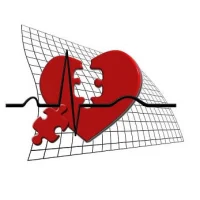According to a survey published in the American Journal of Cardiology, lack of hospital training programs, no formal training or services in cardio-oncology, lack of national guidelines and funding are significant barriers to the establishment of cardio-oncology services.
Studies indicate that many cancers and heart disease are linked through common risk factors and prevalence in similar age populations. Cardio-oncology (which includes both cardiology and oncology specialists) works towards determining cardiovascular risk, prevention and treatment starting at the time of diagnosis and continued through survivorship. Cancer treatments often lead to cardiovascular health problems, including increased risk of cardiac dysfunction, heart failure, arrhythmias, valvular heart disease, accelerated atherosclerosis and pericardial disease.
The ACC survey was conducted to evaluate the current state of cardio-oncology services, practices and opinions. A total of respondents participated in the survey. More than 70 percent felt that the cardiovascular implications of cancer treatments were a very important consideration in the cancer patient treatment continuum, and 65 percent thought access to consultants with specialised training would be a definite advantage when caring for cancer patients with cardiovascular complications. 35 percent of the respondents said that the centres that were surveyed included cardio-oncology services in their pre-operative consultation services. Only 27 percent of centres had an established, specialised cardio-oncology service with multiple clinicians. 16 percent only had a single cardiologist with expertise in treating cancer patients while 12 percent had no cardio-oncology services.
Nearly 50 percent of the respondents indicated that their programs offered no formal training in cardio-oncology while the other 50 percent offered exposure during regular rotations. The primary reason for limited training or no training programs was indicated to be a lack of national guidelines in cardio-oncology and a lack of funding. A large majority of the respondents reported that they did not feel confident in dealing with cardiovascular care specific to cancer patients and had only an average level of understanding of the impact of holding or stopping cancer treatments on cancer outcomes. The cardiologists included in the survey also gave their oncology peers an average rating with respect to their understanding of the impact of slow or inadequate cardiology assessment in the development of cardiovascular complications in cancer patients.
"Despite the common belief that cancer patients with treatment related cardiovascular issues would greatly benefit from a specialized team devoted to the cardio-oncology field and a significant number of cancer patients experiencing treatment related cardiovascular issues, we are lacking the proper resources to care for these patients," said Ana Barac, M.D., Ph.D., lead author of the study and director of the cardio-oncology program at MedStar Heart and Vascular Institute in Washington.”
Source: American College of Cardiology
Image Credit: Wikimedia Commons










